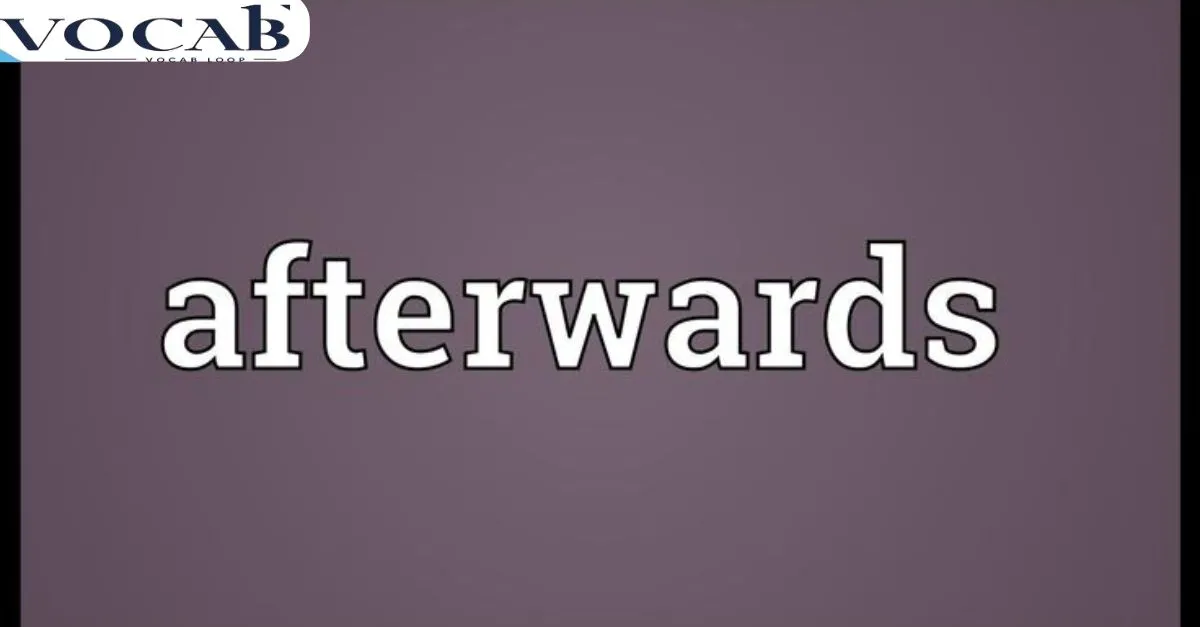The English language is filled with similar-sounding words that can confuse even the most experienced writers. Afterward, afterwards, and afterword are prime examples of such words. While they may sound alike, their meanings and usage are distinct. Afterward or afterwards both refer to something happening at a later time, but their spelling preferences differ based on regional usage.
Afterword, on the other hand, is a noun, typically used to describe a section at the end of a book. Understanding the subtle differences between these words can help you communicate more effectively. In this guide, we’ll explore the meanings, usage, and spelling distinctions of these terms in both American and British English, so you can confidently choose the correct word in any context.
What is There Confusion Afterward or Afterwards
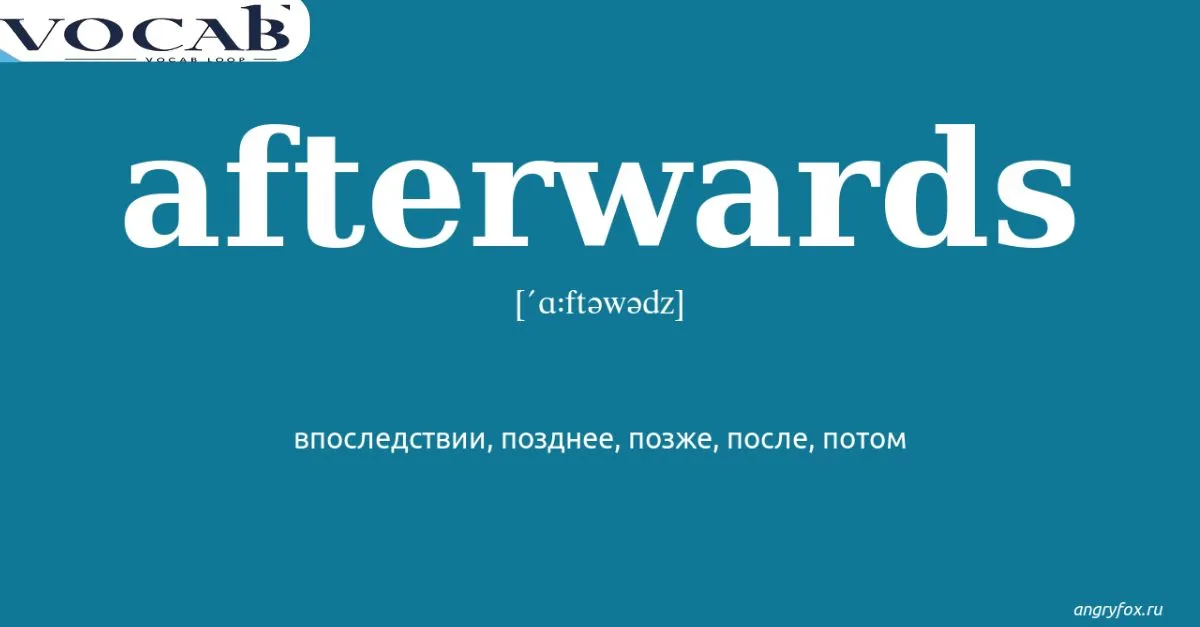
The confusion between afterward and afterwards is common because they are homophones—words that sound similar but differ in spelling and regional usage. People often mistake one for the other, particularly when writing in British English versus American English.
Another source of confusion arises from afterword, which refers to a completely unrelated concept in books. Understanding the distinctions between these terms can make your writing clearer and more professional.
Is the Afterward Word Correct?
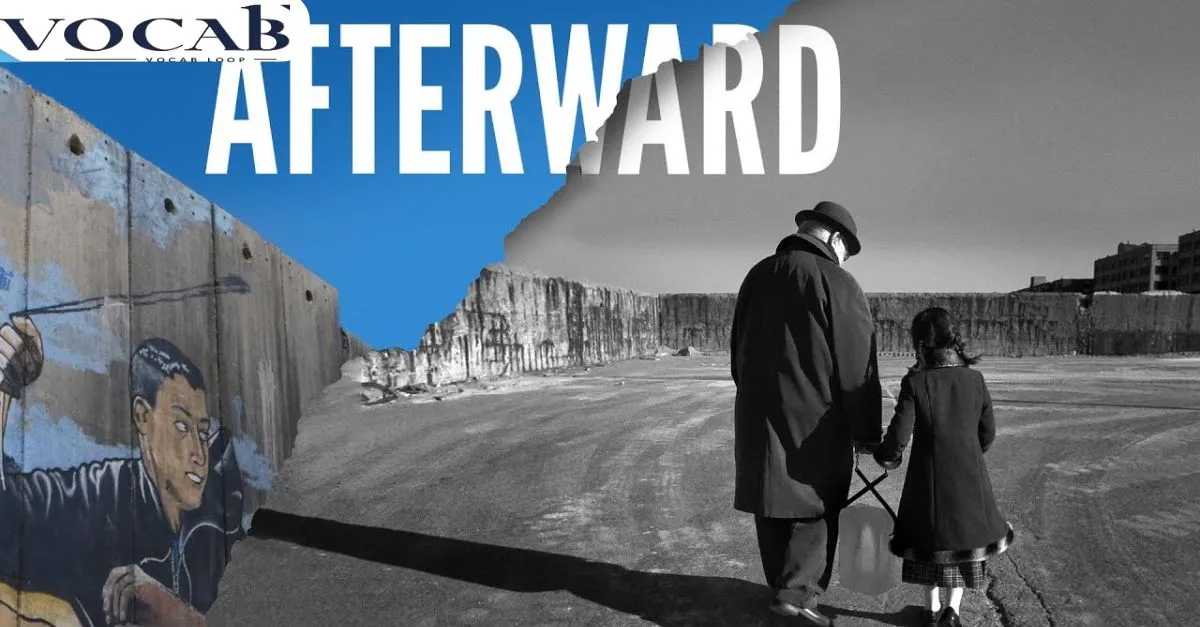
Yes, the word afterward is correct and widely used, particularly in American English. It functions as an adverb meaning “at a later time” or “subsequently.” For example, you might say, “We went to the park and had ice cream afterward.”
This spelling aligns with American preferences for simpler forms, making it the standard choice in the U.S. for casual and formal writing.
Definition:
The word afterward is an adverb that means “at a later time” or “after something has occurred.” It is primarily used in American English.
Meaning:
Afterward refers to the sequence of events, emphasizing the action that follows another event. It answers the question of “what happens next.” This word is often used in narratives to establish the timing of events.
Usage:
An example sentence using afterward might be: “He finished his homework; afterward, he went to play basketball.” As an adverb, it always connects sequential events without altering the sentence structure. In American English, afterward is the preferred choice, making it a natural fit for most contexts.
Is the Afterwards Word Correct?
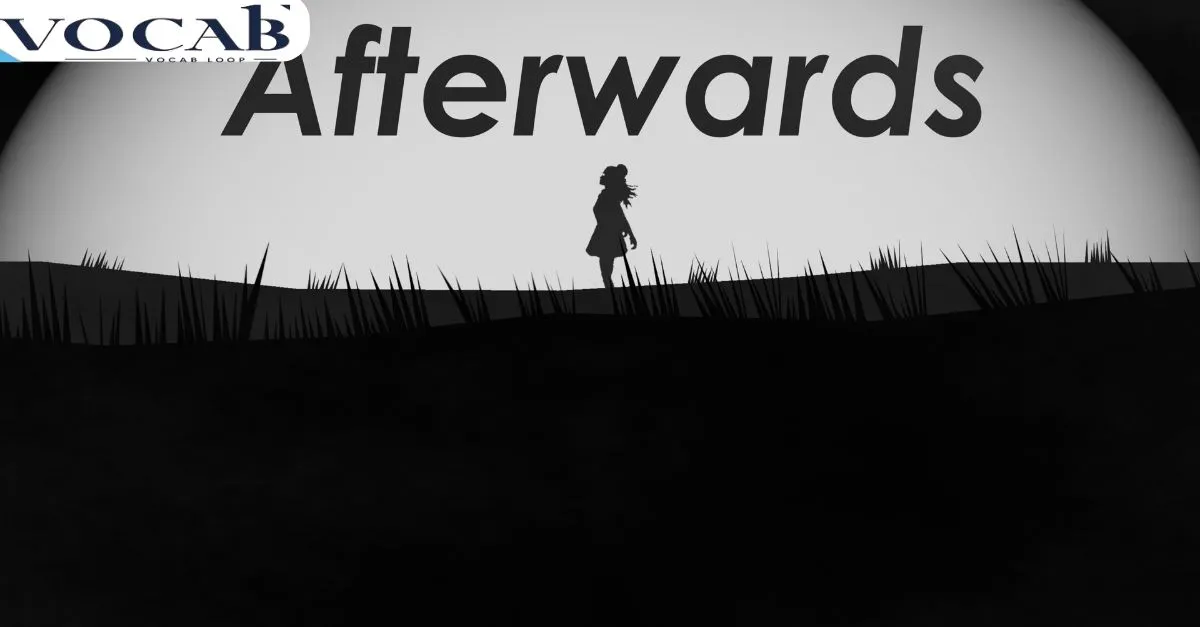
Yes, the word afterwards is correct and commonly used, especially in British English. It also means “at a later time” or “subsequently,” similar to afterward. For example, “They finished their work, and afterwards, they relaxed.”
The addition of the “s” distinguishes it as the preferred form in British English, but both words are correct depending on the region.
Definition:
Like afterward, afterwards is also an adverb. The only difference is its spelling and regional preference, as it is more common in British English.
Meaning:
Afterwards shares the same meaning as its counterpart—indicating an event happening later. However, it is viewed as a slightly more formal word in certain contexts.
Usage:
In a British context, you might see a sentence like: “The meeting ended late; afterwards, we had dinner.” While the meaning remains the same, the choice between afterward and afterwards often depends on the writer’s audience or dialect. In formal American writing, afterwards may sound out of place, while it fits perfectly in a British setting.
Quick Summary
| Aspect | Afterward | Afterwards |
| Definition | Later, at a future time | Later, at a future time |
| Usage | Preferred in American English | Preferred in British English |
| Part of Speech | Adverb | Adverb |
Afterward or Afterwards as Parts of Speech
Both afterward and afterwards function as adverbs. They modify verbs to indicate timing and the sequence of events. Neither word changes in form, making them straightforward to use. However, their placement within a sentence can affect its clarity. For example, “The rain stopped, and we went out afterwards” sounds natural, but using “and we afterward went out” is less common.
Pronunciation of Afterward or Afterwards
In American English, afterward is pronounced as /ˈæf.tɚ.wɚd/, while afterwards is pronounced /ˈæf.tɚ.wɚdz/ in British English. The difference lies in the additional “s” sound in afterwards, which gives it a slightly extended finish. While minor, this difference contributes to regional language preferences.
Side-by-Side Comparison: Afterward or Afterwards
| Word | Preferred Region | Example Sentence |
| Afterward | American English | “He left the party; afterward, he called me.” |
| Afterwards | British English | “The team had lunch; afterwards, they discussed strategy.” |
Which One Is More Acceptable: Afterward or Afterwards
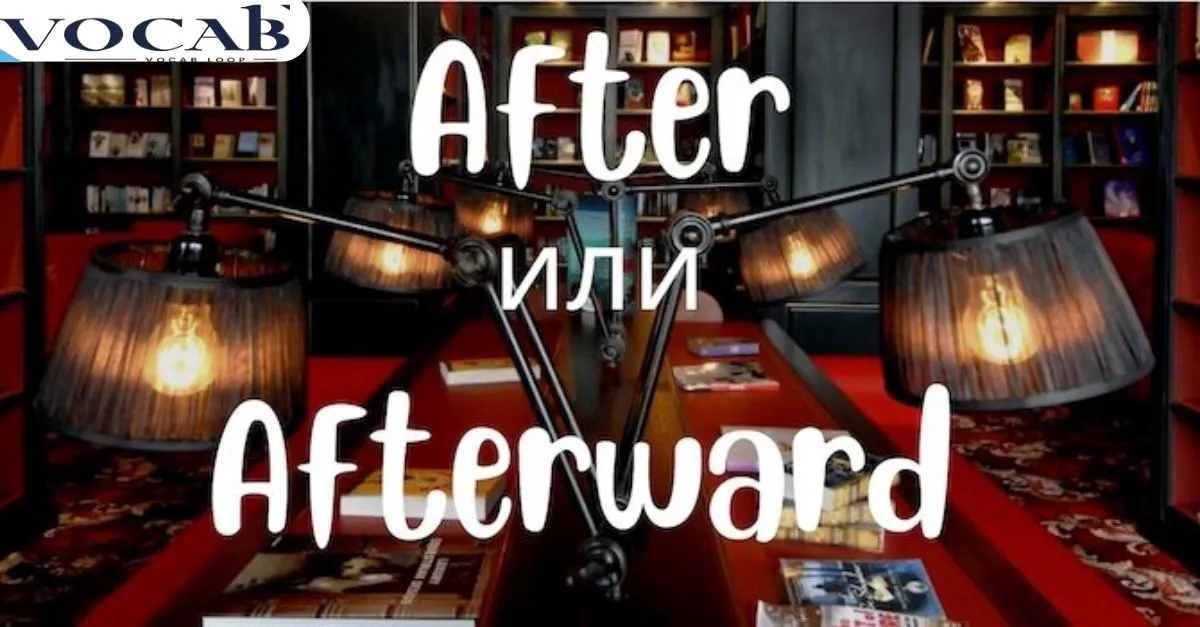
In American English, afterward is almost always the default choice. However, afterwards remains widely accepted in British English. Neither term is grammatically incorrect, but understanding your audience’s expectations ensures your writing sounds natural and engaging.
Afterward in British English and American English
While afterward is used occasionally in British English, it’s often replaced by afterwards due to regional preferences. For example, a British author might say, “We went for a walk; afterwards, we stopped for coffee.” In contrast, American English consistently favors afterward for the same context.
Afterwards in British English and American English
British English treats afterwards as the standard form, used in both formal and informal writing. However, afterwards is sometimes considered outdated in American English, where afterward has become dominant. For instance, Americans are more likely to say, “I’ll see you afterward” than “afterwards.”
Common Mistakes and How to Avoid Them
One common mistake is using afterward and afterwards interchangeably without considering the context. Another frequent error is confusing these terms with afterword, which refers to the epilogue or closing section of a book. To avoid these mistakes, always double-check the meaning and ensure the word aligns with your intended usage.
Trick to Remember the Difference: Afterward or Afterwards
A simple trick to remember the difference is to link the “s” in afterwards with British English, where this form is more commonly used.
For American English, think of afterward as simpler and more concise, reflecting the typical spelling preferences in the U.S. Keep this association in mind, and you’ll easily choose the right word for your audience.
Origins of Afterward or Afterwards
Origins of Afterward:
The word afterward traces back to Old English æfterweard, which means “following in time.” This term was derived from the combination of æfter (meaning after) and -weard (a suffix indicating direction or movement). Over time, as the English language evolved, the spelling and usage of the word simplified, leading to the modern form afterward. It became a common term in American English, where brevity in spelling often takes precedence, aligning with the country’s preference for streamlined language.
Origins of Afterwards:
The word afterwards also originates from æfterweard but developed differently during the Middle English period. The additional “s” reflects a grammatical evolution common in British English, where certain adverbs took on this suffix to emphasize sequence or direction. This variant became the preferred form in Britain, cementing its place in regional language traditions.
Synonyms of Afterward or Afterwards
Afterward:
- Later
- Subsequently
- Thereafter
- Next
- Then
- In due course
- At a later time
- Eventually
- Later on
- Following
Afterwards:
- Subsequently
- Later on
- Eventually
- Thereafter
- In due course
- Then
- At a later date
- Following that
- Henceforth
- Next
Sentences in Daily Usage of Afterward or Afterwards
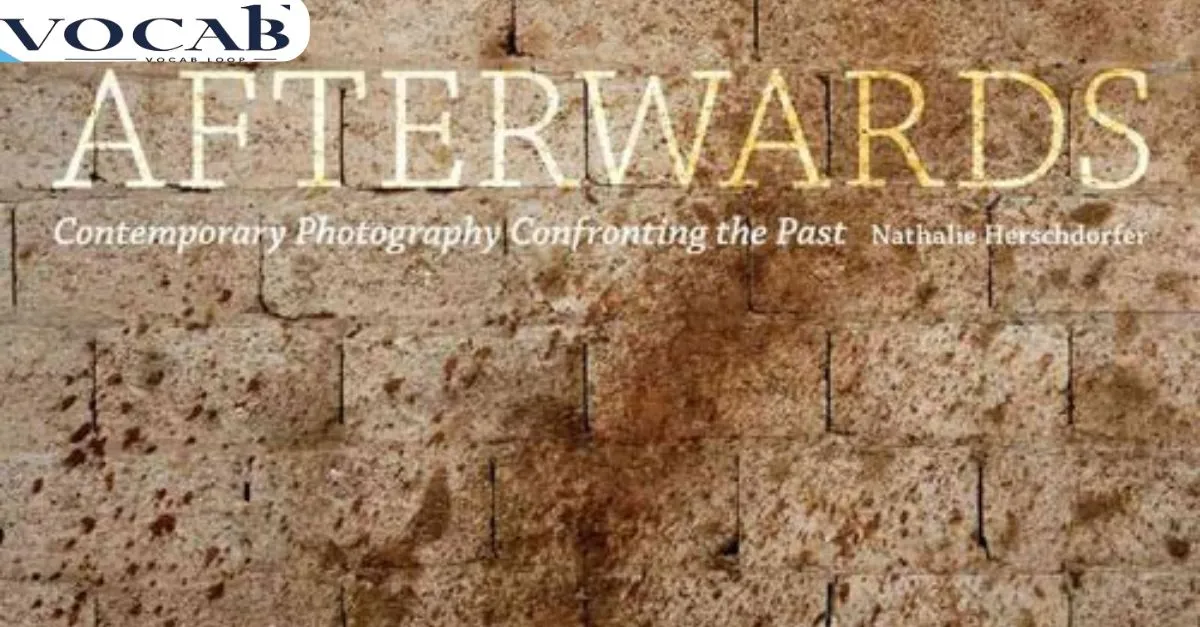
Afterward:
- He promised to clean the house and do the dishes afterward.
- We went hiking in the morning and relaxed afterward by the lake.
- She completed the test quickly and stayed behind afterward to review her answers.
- The children had a playdate and returned home afterward for dinner.
- He signed the contract and called his lawyer afterward to confirm.
- The coach gave a motivational speech, and the players practiced hard afterward.
- The meeting ended late, but everyone felt relieved afterward.
- They had a busy week but celebrated afterward with a weekend trip.
- She visited the gallery and spoke with the artist afterward about the paintings.
- We completed the group project and went out for ice cream afterward to celebrate.
Afterwards:
- She made dinner; afterwards, they watched a movie together.
- He apologized afterwards, admitting his mistake during the meeting.
- The wedding ceremony was beautiful; afterwards, the guests enjoyed the reception.
- They toured the museum and relaxed afterwards at a café nearby.
- The conference ended, and afterwards, everyone exchanged contact information.
- He forgot his wallet at the store but went back afterwards to retrieve it.
- We had a long discussion about the plan and started the project afterwards.
- The party was lively; afterwards, they all shared photos and memories online.
- She gave an impressive presentation and reflected on her success afterwards.
- The students took their final exams and celebrated afterwards with a party.
FAQs
Can you use “afterwards” in American English?
Yes, but “afterward” is more common.
Is “afterward” formal?
It can be used in both formal and informal settings.
Which word is preferred in British English?
“Afterwards” is the standard choice.
What does “afterword” mean?
“Afterword” is a noun referring to the closing section of a book.
Are “afterward” and “afterword” related?
No, they have entirely different meanings and functions.
Conclusion
Deciding between afterward, afterwards, and afterword hinges on their distinct meanings and contextual usage. Afterward and afterwards both mean “at a later time,” but afterward is favored in American English, while afterwards is preferred in British English. Their difference lies mainly in regional preference rather than grammar or meaning.
On the other hand, afterword is entirely different—it’s a noun referring to the final section or epilogue of a book, where authors provide reflections or additional information. Knowing these distinctions helps you avoid confusion and ensures your writing is clear and accurate. By considering the context and audience, you can confidently choose the appropriate term for either British or American English.

Alex Hormozi is a seasoned blogger at Vocab Loop, known for his deep insights into language, vocabulary, and grammar. With years of experience in writing, Alex shares practical tips and effective strategies to help readers improve their linguistic skills and enhance their writing abilities.

